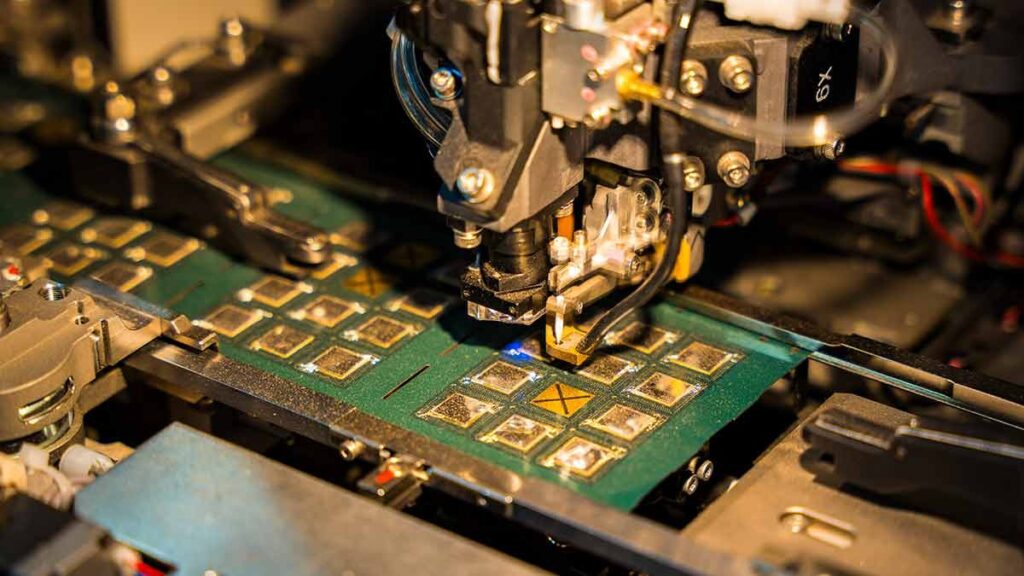Ashwini Vaishnaw, Minister of IT and Electronics, announced at the CII Annual Business Summit that India will roll out its first domestically manufactured semiconductor chip with a 28-90 nanometer (nm) process this year. He shared that six manufacturing units are currently under construction, with production having started in 2022. The 28-90 nm chips are vital for sectors like automotive, telecom, power, and railways. Smaller nanometer chips mean more compact designs, enabling better performance.
Balancing Manufacturing and Services for Growth
Vaishnaw stressed the importance of both manufacturing and services sectors in India’s economic growth. He emphasized the need for India to develop its own intellectual property (IP), products, designs, and standards, rather than relying on imports or foreign technologies.

Impact of Artificial Intelligence (AI)
Highlighting AI’s transformative potential, Vaishnaw noted that AI will have an impact comparable to the internet’s influence on the world. He urged industries to prepare for this massive change and called for AI models trained on Indian culture, languages, and social norms. One such model is being developed by Sarvam, he mentioned.
Achievements in Indian Railways
As the Railway Minister, Vaishnaw shared that Indian Railways has become the world’s second largest cargo transporter, moving 1,612 million tonnes of freight and surpassing the US and Russia. Passenger capacity has also grown significantly. He described this progress as fulfilling long-held goals and dreams and encouraged more industries to collaborate with the railways.Encouraging Innovation Through Startups
Vaishnaw highlighted the success of involving startups in the railway sector. The government is now introducing a policy that allows testing innovative ideas on a smaller scale before expanding them based on results, aiming to foster more innovation and efficiency.
